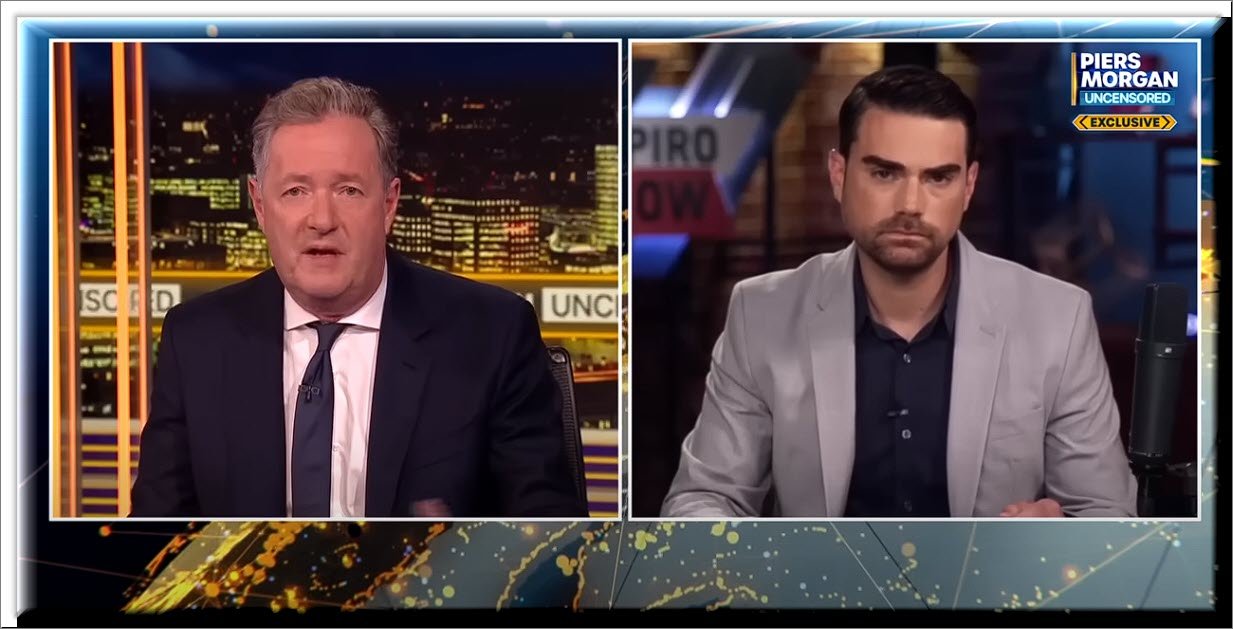Ben Shapiro and Piers Morgan: A Thought-Provoking Discussion on the Israel-Hamas Conflict

Ben Shapiro and Piers Morgan: A Thought-Provoking Discussion on the Israel-Hamas Conflict filled with divisive opinions and polarizing views, the Israel-Hamas conflict has certainly garnered its fair share of attention. Two notable figures who have engaged in a passionate discussion surrounding this issue are conservative political commentator Ben Shapiro and British television personality Piers Morgan. While their perspectives may differ, their exchange of ideas provides an opportunity for critical thinking and understanding of this complex conflict. Let’s delve into their enlightening conversation and explore their viewpoints in a respectful and thought-provoking manner.
The Background:
The Israel-Hamas conflict is a long-standing dispute involving the State of Israel and the Palestinian militant group Hamas. The emergence of this conflict dates back to the establishment of Israel in 1948. Over the years, the region has been plagued with violence and recurring clashes, resulting in immense human suffering and political instability.
The Conversation:
Ben Shapiro, a well-known conservative pundit and author, and Piers Morgan, a renowned television personality, engaged in a televised discussion to address various aspects of the Israel-Hamas conflict. This conversation allowed them to highlight different viewpoints, further the understanding of the conflict, and engage in an educative dialogue.
Ben Shapiro’s Perspective:
Shapiro argued that Hamas, the Palestinian militant group governing the Gaza Strip, holds primary responsibility for the escalation of violence. He emphasized their deliberate placement of military assets in civilian areas, using them as human shields. Shapiro asserted that Israel, as a sovereign state, has the right to protect its citizens from terror attacks, emphasizing the importance of self-defense.
Shapiro highlighted Hamas’ ideology and its explicit goal to destroy Israel. He argued that by targeting Israeli cities and citizens, Hamas seeks to provoke an Israeli response, as it generates sympathy and international attention. Shapiro believed that any attempts to negotiate with terrorists would only signal weakness, emboldening their malicious intentions.
Piers Morgan’s Perspective:
Morgan acknowledged the complex nature of the Israel-Hamas conflict, emphasizing the need for empathy towards innocent civilians caught in the crossfire. He acknowledged that the situation is far from black and white, criticizing both sides for their actions. Morgan urged for a peaceful resolution, calling for diplomacy and negotiations as the most effective means of achieving lasting peace.
Recognizing the importance of dialogue, Morgan emphasized the significance of engaging with moderate elements within Hamas, stating that marginalizing them would only amplify radicalism. He also pressed for greater international involvement, emphasizing the role of global powers in helping facilitate an end to the ongoing violence.
The Importance of Education and Mutual Understanding:
Through their exchange, Shapiro and Morgan provided audiences with a deeper understanding of the Israel-Hamas conflict. A conflict of this magnitude necessitates open dialogue, where people can listen to differing opinions and challenge their preconceived notions. Education plays a vital role in transforming public perception and highlighting the complexity surrounding any armed conflict.
Both Shapiro and Morgan stressed that the media has a significant responsibility to disseminate accurate information, promote unbiased reporting, and engage in nuanced discussions. Instead of perpetuating sensationalism, informed debates like theirs demonstrate the power of civil discourse in shaping public opinion.
The Israel-Hamas conflict is a deeply complex issue that requires thoughtful analysis and dialogue. The conversation between Ben Shapiro and Piers Morgan exemplifies the importance of diverse viewpoints and informed discussions to foster mutual understanding and find a path towards peace. By educating ourselves about conflicts beyond surface-level narratives, we can actively contribute to creating a platform that bridges divides and fosters collective progress.
Throughout his career, Roy Swire has remained true to his roots, using his artistry to inspire and uplift others. Whether through his music, writing, or activism, he continues to make a meaningful impact on the world, proving that art has the power to transcend boundaries and unite people from all walks of life.
Related News
Supreme Court Overturns Lower Court’s Block on Venezuelan Deportations – The New York Times
Spread the love Supreme Court Overturns Lower Court’s Block on Venezuelan Deportations The New York TimesRead More
Top Democrats stress contrasts between Trump, Harris at Pa. rally – The Washington Post
Spread the love Top Democrats stress contrasts between Trump, Harris at Pa. rally The Washington PostRead More
